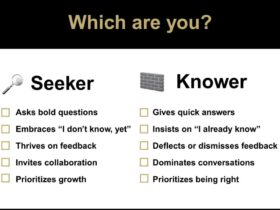The Virginia statute of limitations for defamation claims states that “every action for injury resulting from libel, slander, insulting words, or defamation shall be brought within one year after the cause of action accrues.” (See Va. Code § 8.01-247.1). A defamation cause of action “accrues” when the defamatory acts occurred, which is generally the date the defamatory statements were communicated to a third party. Some plaintiffs have tried to file defamation actions after the one-year period has expired (i.e., over a year after the accrual date) by arguing that the statute of limitations should be extended because the defendant engaged in a continuous, ongoing defamation campaign that isn’t really capable of being measured by any particular date. This theory has been successful in getting around statutes of limitations governing breach-of-contract cases against doctors and lawyers, but as a recent federal case confirms, it doesn’t apply to defamation claims.
The theory has been described variously as the “continuous tort rule,” the “continuing wrong doctrine,” the “continuing violation doctrine,” and the “continuous undertaking rule.” Regardless of what you call it, the idea is that a court can consider acts occurring outside the limitations period if there is a “fixed and continuing practice” of unlawful acts both before and during the limitations period. (See Commonwealth ex rel. Fair Hous. Bd. v. Windsor Plaza Condo. Ass’n, Inc., 289 Va. 34, 65 (2014)). Under this rule, “where there is an undertaking which requires a continuation of services, the statute of limitations does not begin to run until the termination of the undertaking.” (Harris v. K & K Ins. Agency, 249 Va. 157, 161 (1995)). The rule postpones the accrual date “with respect to a particular undertaking or transaction” and applies “only when a continuous or recurring course of professional services relating to a particular undertaking is shown to have taken place over a period of time.” (Moonlight Enters., LLC v. Mroz, 293 Va. 224, 230 (2017)).
Defamation doesn’t really fit into the “continuing tort” mold. Continuing torts are those that are active and continuing, consisting of wrongful conduct that persists over time. Plaintiffs may argue that a smear campaign was part of an ongoing pattern of harassment, but even if this is true, the defamation itself is complete once the elements of the tort are established. In other words, once the defendant publishes an actionable statement with the requisite intent, a defamation claim accrues and the plaintiff has one year in which to file suit. If the defendant defames the plaintiff again later as part of an ongoing course of conduct, the original defamation claim isn’t extended to include the later statement as part of the same “continuing tort”; rather, a new claim of defamation accrues.
For those looking for a recent Virginia case dealing with these principles, check out Christine Cox v. Red Hat, Inc. Ms. Cox was a senior director at Red Hat and became concerned about an alleged kickback scheme. After reporting her concerns to Red Hat’s legal department, Bruce Marcey, an account executive allegedly involved in the scheme, commenced a “continuous, months-long campaign of disparaging” Ms. Cox. According to the complaint, Mr. Marcy called her a “slut” and a “whore,” told others she had “slept with Greg Feldman,” that she had been “sleeping with Jim Boykin,” and that she had “slept her way to the top.” She sued for defamation.
The defendants moved to dismiss the defamation claim as most of the statements had allegedly been made over one year prior to the date the suit was filed. Ms. Cox responded by arguing that the statements about her made over a year prior to the filing date were part of a “continuous tort,” which effectively extended the limitations period to the final defamatory statement.
The court didn’t buy it. “[C]ourts within this District have uniformly held that, because each publication of a defamatory statement constitutes a separate tort, the continuing violation theory does not apply to defamation claims,” it wrote (citing Lewis v. Gupta, 54 F. Supp. 2d 611, 616 (E.D. Va. 1999)). The court noted that in cases of repeated, ongoing defamation, “each separate defamatory statement itself constitutes a separate and distinct cause of action.”















